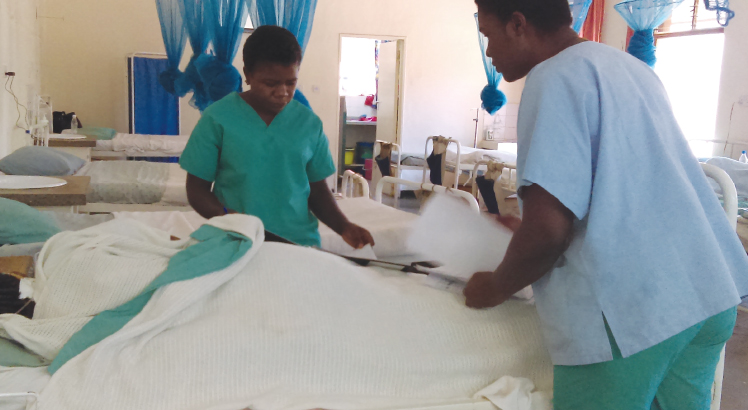Restoring women’s dignity via fistula diagnosis, treatment
Kasungu resident Loveness Nyasulu was overjoyed when she learnt that she had conceived.
She said: “I was really very happy when I fell pregnant for my fourth child. As a family, we had planned that this could be my last pregnancy since we already had three children.
“You can imagine the excitement I felt for having a last born child.”
Nine months later, the 38-year-old from Chidungu Village, Traditional Authority (T/A) M’nyanja in Kasungu District gave birth to a baby boy through Caesarean Section and the Nyasulus were happy to welcome a baby boy.

However, the joy was short-lived when Nyasulu started experiencing strange feelings in her body after the operation.
She said: “Immediately after I gave birth, I discovered that I had lost some senses, especially when it came to urinating and defaecating.
“I could not even know when I wanted to urinate or defaecate, but I could only notice flies and bad odour and was covered by faeces and urine.
“I started thinking that someone had bewitched me because of the new baby boy. With this in mind, I convinced myself that my problem could well be handled by traditional doctors.
“We then went to various traditional healers to seek help, but it all ended in vain as the problem continued.”
Stigma
Nyasulu said she could not figure out what was going on. She says she could not go to church, funerals and other social gatherings as some poked fun at her.
Her husband, Maliko, said he also faced stigma because of his wife’s condition.
He said: “My fellow men mocked me and wondered why I was still staying with a woman who defaecated and smelt bad on her own.
“Had it been that I was not strong enough, the family could have collapsed. It was really the lowest point of our lives as a family.” Intervention
After exhausting all means to end the problem, Nyasulu and her husband decided to try the hospital. She said they approached health surveillance assistant Lucky Matemba.
The healthcare worker said: “After I interacted with her, I suspected fistula. But since matters of such nature are beyond my control, I referred her to a fistula disease coordinator at M’nyanja Health Centre. I was then referred to Kasungu District Hospital where the disease was confirmed. I was then referred to Bwaila Hospital in Lilongwe for specialised treatment.”
Hope restored
Nyasulu, who was discharged few days later said: “For two months, I was being treated for fistula and I could feel some change. The faeces and urine stopped. Long at last, I could see my dignity restored.”
Bwaila Hospital fistula specialist Mervice Nakwanje says if diagnosed early, fistula is treatable.
She said: “Women should not get worried with fistula because it can be treated. This mostly happens during the time of giving birth if the child inside has grown bigger than the outlet. During birth, a child may panic in the process of trying to come out and this may cause fistula.
“Women are encouraged to rush to the hospital to seek help than to go to traditional healers to avoid losing the unborn child and risking their lives.”
Nakwanje said some women are suffering from the disease because they give birth while young. She said there is need for civic education among girls to avoid such cases.
She also bemoaned discrimination, saying fistula patients are marginalised in some hospitals in the country.
“Discrimination of people who are suffering from fistula is very common. To avoid this challenge, women that are suffering from the disease they should go and seek treatment from government hospitals where patients receive fair treatment for free,” says the specialist.
Ministry of Health spokesperson Adrian Chikumbe said they are encouraging women and girls to go to nearest hospitals in their communities to checkup regularly even if they do not see signs and symptoms.
“It is very important to know early stages of the disease so that it should be treated fast to avoid some damages that may occur in women,” he said.
At last, Nyasulu can have her dignity restored as a woman through early diagnosis and treatment of fistula.





